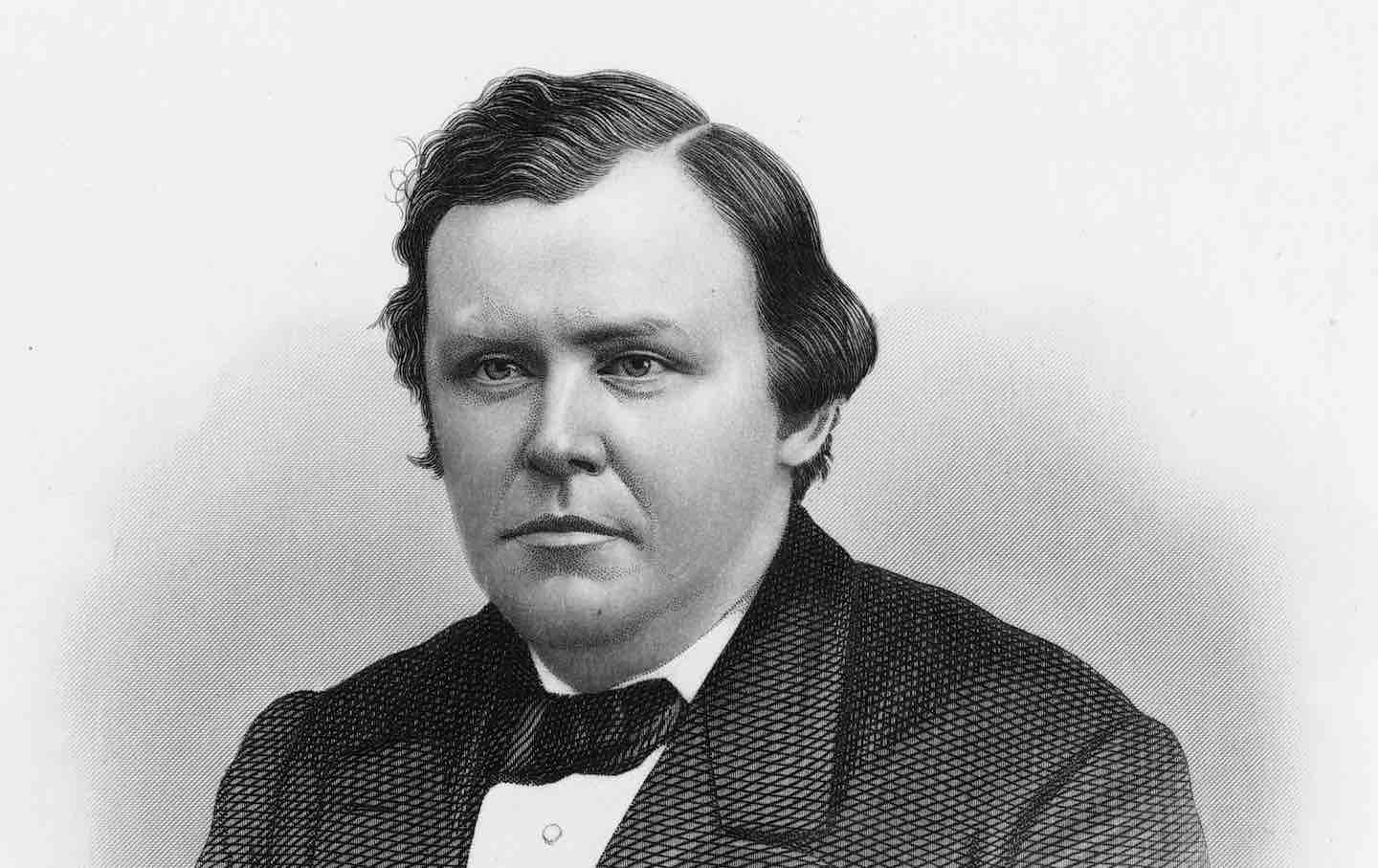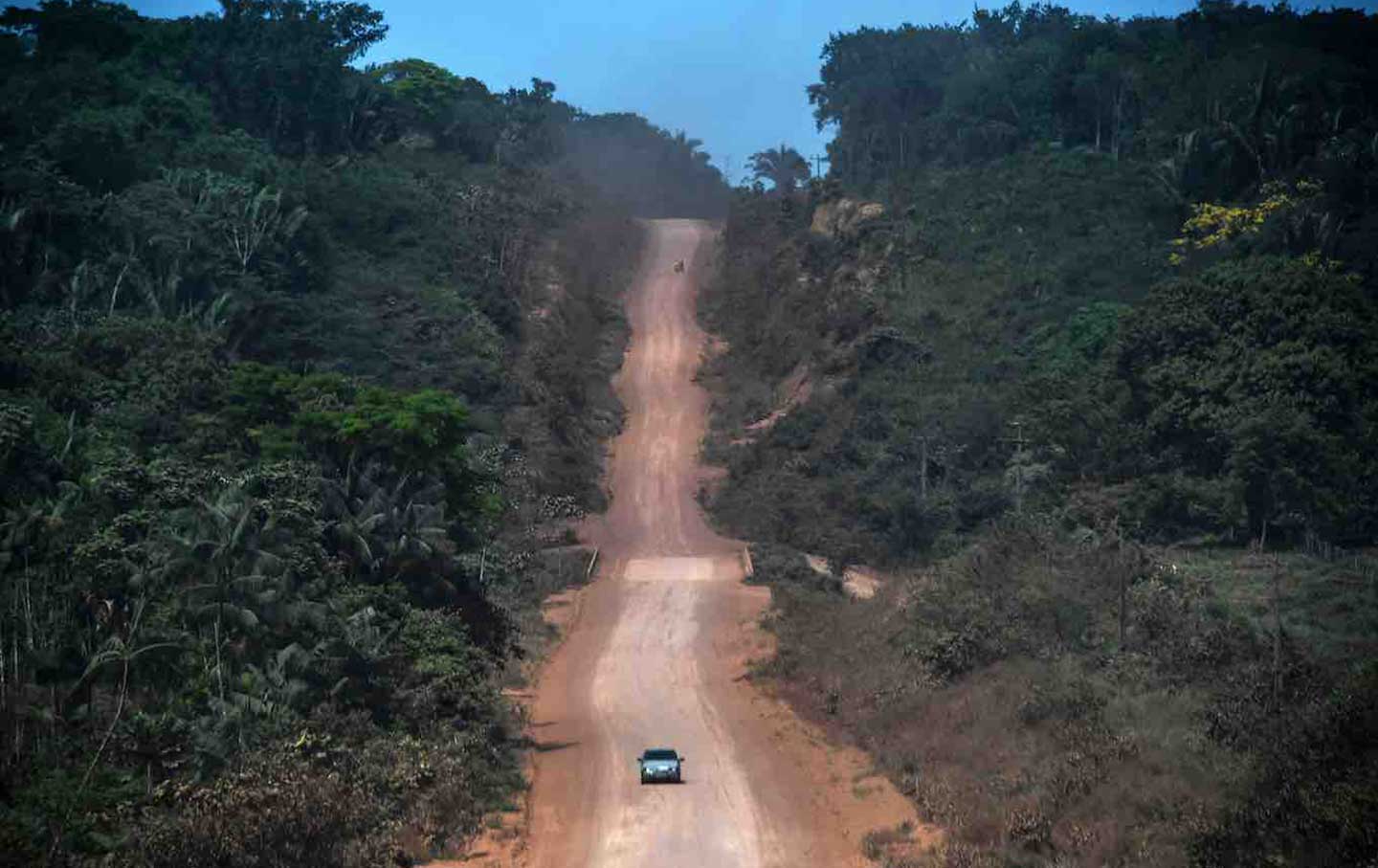Love of the world is so clearly come and go,
the way we talk sounds beautiful and sad.
You have to try these three words before you can
say the harder thing.
The air at evening crumbles into rose flakes.
The wind like a child’s breath.
This is cement. It’s almost hard now, but when it’s new, it’s soft.
If we step in it then it’ll be there forever.
To describe is to praise, I’ve always felt that.
Two crows fly up and disappear into the depths of the redwood.
Talking with Sarah in bed I touch her hair.
How often do we use the word “safe” each day? Thanks,
a walk sounds nice. When I write this
winter I trace lines of motion I conclude
I’ve lived. My mentor tells me I am
more than a series of inclinations,
twilight knotted with dislikes.
More from The Nation

The Peculiar Case of Ignatius Donnelly The Peculiar Case of Ignatius Donnelly
The Minnesota politician presents a riddle for historians. He was a beloved populist but also a crackpot conspiracist. Were his politics tainted by his strange beliefs?

The Agony of Aaron Rodgers The Agony of Aaron Rodgers
Is he the world’s most interesting athlete or is he just a washed-up crackpot?

Can You Understand Ireland Through One Family’s Terrible Secret? Can You Understand Ireland Through One Family’s Terrible Secret?
In Missing Persons, Clair Wills's intimate story of institutionalized Irish women and children, shows how a family's history and a nation’s history run in parallel.

Peter Schjeldahl’s Pleasure Principle Peter Schjeldahl’s Pleasure Principle
His art criticism fixated on the narcissism of the entire enterprise. But over six decades, his work proved that a critic could be an artist too.

How the Western Literary Canon Made the World Worse How the Western Literary Canon Made the World Worse
A talk with Dionne Brand about her recent book, Salvage, which looks at how the classic texts of Anglo-American fiction helped abet the crimes of capitalism, colonialism, and more...

Along the Roads That Built Modern Brazil Along the Roads That Built Modern Brazil
José Henrique Bortoluci's What Is Mine tells the story of his country’s laborers, like his father, who built its infrastructure, and in turn its fractious politics.


